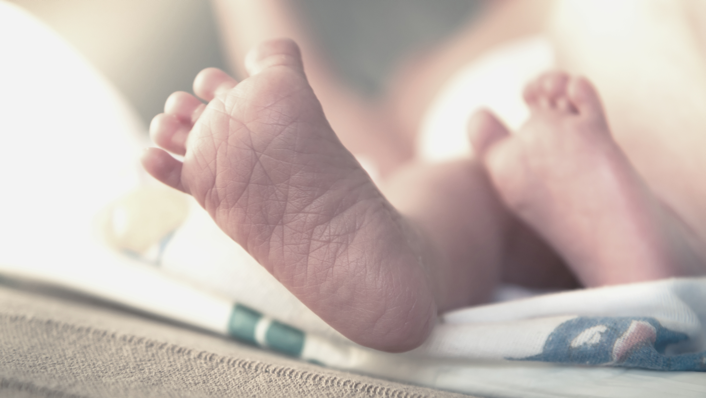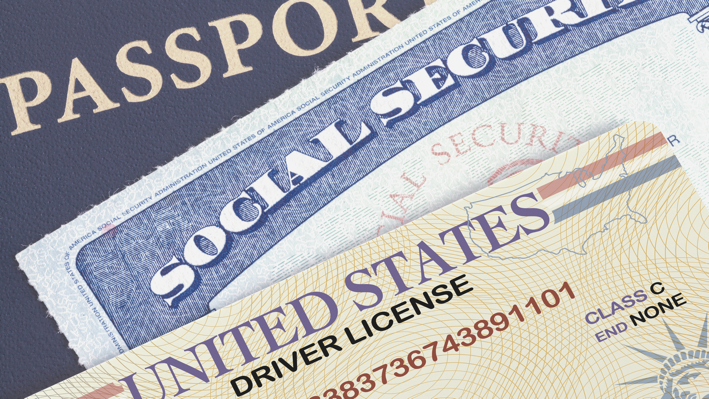An adoptee’s birthright
By Hannah Blair | April 14, 2023

I will never forget the moment I learned that my original birth certificate is state property. As an adoptee, I have no legal access to it. But if I were able to see it, I would see on the side of the document that it has been stamped with one of those ink stamps used to save time. Like the original birth certificates of adoptees all over the country, the document was stamped with the word, “Void.” What I have instead is an “amended birth certificate.”
Our original birth certificates are our vital records – the “official” documentation that provides when and where we were born, what we weighed, and the name of the woman who carried us for nine months. When a baby is adopted, their birth certificate is amended: the names of the birth parents are replaced with the names of the adoptive parents. When the adoption is finalized, the adoptee’s original birth certificate (OBC) is sealed with the adoption file and a new, amended birth certificate (ABC) is issued.
The OBC is no longer considered the legal record of birth and the ABC becomes a legal lie that supports secrecy and denies adoptees the right to know their origins. It keeps them in a childlike position where they cannot access what every other citizen has a right to access: their original, factual, and unaltered certificate of birth. Adoptees’ identities are erased and records proving who they were prior to being adopted are essentially non-existent.
We’ve perpetuated this narrative that essentially re-creates adoptees on paper, as if their stories began with the finalization of their adoptions and not their first breath. Instead of allowing their original birth stories to be integrated into the storyline, we conceal and alter adoptees’ records – an erasure of their pre-adoption identities.
Adoptees are not blank slates and access to their own biology should never be a privilege or a luxury.
The history of sealed birth records is steeped in shame, stigma, and horrendously unethical practices. This idea of ABCs is a practice originally invented by Georgia Tann in the 1930's. Tann promoted the practice of sealing birth records across the country, marketing it as the most efficient way to conceal illegitimacy. In reality, she was attempting to cover up the fact that all 5,000 of the children she procured for adoption had been trafficked.

She lobbied for the anonymity of both the adoptee and adoptive parents by issuing new birth certificates (ABCs), claiming it would prevent the biological family from interfering with the adoption as well as shield the adoptee from the stigma of their poverty-riddled and illegitimate origins by making it seem as though the child was born to married parents.
What Tann was actually doing was trying to provide as little opportunity as possible for the biological families to locate and reclaim their children who had been stolen and sold by Tann. Several politicians, some who actually adopted from her, did not hesitate to make Tann’s methods a permanent part of the adoption process.
Unfortunately, the modern adoption industry hasn’t strayed far from Tann’s influence, especially regarding amended birth certificates.
Each state has different laws about giving adoptees access to their OBCs. As of November 3, 2022, only twelve states allow adult adoptees to request and obtain a copy of their OBC with no restrictions. In most other states, if adoptees wish to access their OBC, they must endure a lengthy court process and demonstrate to a judge that they have a need to know this information. The rights of adult adoptees are subject to the discretion and mercy of the judiciary with no assurance of a favorable outcome or a clear process for appeal.
Adoptees face a confusing web of different state laws and policies, and this doesn’t end with the process to access their OBC.
Because most ABCs are filed more than one year after the adoptee is born, the date of birth and the issue date listed on the document are not identical, causing ABCs to be considered modified. This is not accepted as required documentation in most states to get a driver’s license so adoptees have difficulty obtaining this necessary form of identification. Many adoptees have had their state DMVs turn them away for having a “fraudulent looking” birth certificate.
If someone can’t get a legal I.D. in their state, they cannot apply for a passport. And as of October 2021, commercial air travel requires either a passport or Real ID, both of which require legitimate birth records. Many adoptees don’t have those. Without an OBC, adoptees aren’t able to ride planes and trains, or travel outside the boundaries of the U.S.
The fact that many adoptees are unable to obtain a passport or license because their legal birth certificate (issued by the state government after their OBC was locked up) is not considered an original document is a travesty of civil rights.
For international adoptees, ABCs present an even bigger problem. Thousands of international adoptees were brought into the United States as children for the purpose of adoption and grew up believing they were American citizens. But the adoption process doesn’t ensure citizenship.

Amended birth certificates are not considered valid proof of U.S. citizenship.
According to the Adoptee Rights Campaign, is estimated that up to 49,000 international adoptees are left without U.S. citizenship. Why? For some, it was the complex and time-consuming process for acquiring citizenship after overseas adoption. For others, it was inadequate or erroneous information during the adoption process or the adoptive parents deliberately avoiding applying. Regardless, many adoptees are living without citizenship and nationality rights.
This means that on top of being denied driver’s licenses and passports, transnational adoptees face restrictions with loans, employment, health care, and the right to vote. For example, E-Verify, a web-based system to confirm employees’ eligibility to work in the U.S., is being used by more than a million employers. Without their OBCs, adoptees are considered “ineligible” for employment, causing thousands of adoptees to be unable to support themselves or their families financially.
Additionally, denying adoptees their original birth certificate means denying them their medical history.
For non-adopted people, your family's medical history helps you and your physician make important decisions about your care. For adoptees, the OBC is the key to obtaining medical histories, which impacts family planning and the treatment of life-threatening diseases. Imagine the helplessness and expense when a confusing genetic disorder presents in an adoptee or their child.
Without genetic testing or knowing the information about their biological families' medical histories, adoptees often don't know until too late in a disease that they can receive treatment which may prolong their lives.
Even more, some insurances do not pay for costly tests because the adoptee does not know their family medical history. One example of this is some insurances have denied individuals the cost of tests for the BRCA1 & BRCA2 genes (hereditary cancer). There are also other diseases which are passed onto a child and the family is not able to have the child assessed because the parent does not know their own biological family's medical information. The parent can't help their own child because they have been denied their information.
Regardless of their country of origin, after losing their identity, adoptees later struggle to retrieve it.
Many adoptees jump through innumerable loopholes to ask for their adoption files and end up spending excessive amounts of money on searches and DNA testing to find out information that everyone else takes for granted. Others are left behind by a legal loophole and have no pathway to the citizenship they were promised. It’s no wonder that adoptees are 4 times more likely than the general population to attempt suicide. Granting adoptees equal rights and access to information would end a blackout that robs adoptees of citizenship, autonomy, identity, and self-determination.
Adoptees are an invisible minority who is yet to obtain parity in regards to their basic human rights.
All adoptees have a right to the same records as everyone else. Adoptee rights is a matter of restoring equal treatment under law for all adoptees. This means no longer perpetuating adoption practices and narratives that consider adoption to secretive and shameful. This means ensuring citizenship for international adoptees so that they don’t experience a loss of security along with all other losses they experience in the adoption process. This means granting adoptees the same rights as non-adoptees so they don’t continue to have parts of their stories stolen that takes them a lifetime to piece back together.
Adoptee rights are human rights. As Gabrielle Glaser says in her book “American Baby: a Mother, a child, and the Shadow History of Adoption”, “If there is a basic human right to know your parents or the fates of your sons and daughters, then a significant number of our fellow citizens [adoptees] have been deprived of something as fundamental as life, liberty, and the pursuit of happiness.”
 Hannah Blair
Hannah Blair
2022-2023 Global Human Rights Hub Fellow
Hannah is earning her MA in social justice and human rights at ASU. Her research is centered around human trafficking and sexual exploitation. Her most recent project titled, “Survivors at the Core: The Effectiveness of Anti-Trafficking Organizations Who Place Survivors in Leadership Positions“ was invited for presentation at the Himalayan Policy Research Conference. She is a lived experience expert and survivor consultant with multiple anti-trafficking organizations and was a 2021 recipient of the Elie Wiesel Foundation’s National
